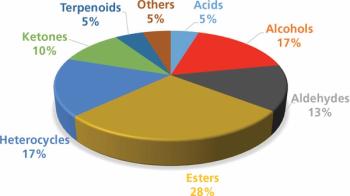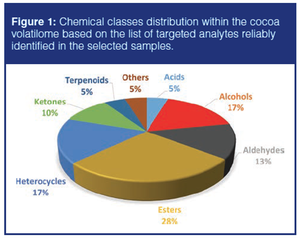Articles by Stephen E. Reichenbach

Food quality differences are dependent on botanical and geographical origins of primary food ingredients as well as storage and handling. Quality assessment for food materials, including cocoa and olive oil, is demonstrated by applying two-dimensional gas chromatography (GC×GC) combined with time-of-flight mass spectrometry (TOF-MS) and pattern recognition.

Chemical fingerprinting can provide evidence for quality differences resulting from botanical and geographical origins of primary food ingredients, post-harvest practices, production processes (such as traditional versus industrial processes), and the shelf-life evolution of finished products. This article discusses the strategic role and potential of comprehensive two-dimensional gas chromatography (GC×GC) combined with time-of-flight mass spectrometry (TOF-MS) and pattern recognition using template matching for data processing to unravel the quality traits of high-quality food products. Practical examples dealing with high-quality cocoa and extra-virgin olive oil are described.

Chemical fingerprinting can provide evidence for quality differences resulting from botanical and geographical origins of primary food ingredients, post-harvest practices, production processes (such as traditional versus industrial processes), and the shelf-life evolution of finished products. This article discusses the strategic role and potential of comprehensive two-dimensional gas chromatography (GC×GC) combined with time-of-flight mass spectrometry (TOF-MS) and pattern recognition using template matching for data processing to unravel the quality traits of high-quality food products. Practical examples dealing with high-quality cocoa and extra-virgin olive oil are described.




